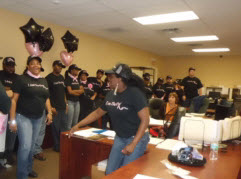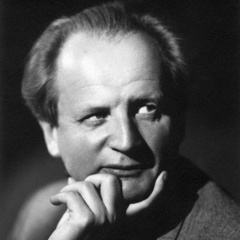 |
The future of biotechnology is beginning now, says Dr. Lindsay Rosenwald of Investment Partnership.What is biotechnology?
According to Dr. Lindsay Rosenwald, at its core, biotechnology utilizes living organisms or systems to make industrial, medical, and other products. The technology itself, in a much more crude form, has been used for many centuries in agriculture. However, with the advent over the last several decades of new technologies and a greater understanding of the almost limitless number of genes and processes in living organisms, the discoveries and applications of those discoveries are happening at a rapid and accelerating pace. This trend is likely to occur for the next several decades, says Dr. Lindsay Rosenwald. |
Medical breakthroughs
Dr. Lindsay Rosenwald notes that through research in biotechnology, and the decades and hundreds of billions of dollars, if not trillions of dollars already, that have been invested, there are dramatic advances in bio engineering, bio imaging, cellular and tissue engineering, molecular biology, applications of the human genome, and more.
Lindsay Rosenwald predicts that as progress continues, and continues to accelerate, there will come a time where all diseases will be treatable and curable. Already, over the last decade or so, diseases such as lymphoma, multiple myeloma, other blood cancers, have gone from routinely fatal to curable and/or chronic, manageable conditions. Dr. Lindsay Rosenwald believes that in 10 years or less, the vast majority of cancers will be in that same category.
Dr. Lindsay Rosenwald believes that we are not too far away from being able to create medicines through biotechnology that allow most chronic diseases to be curable. In fact, Dr. Lindsay Rosenwald believes that through biotechnology, science and industry will collaborate and be able to develop replacement organs so that patients suffering from organ failure, whether the organ is the heart, lungs, liver, pancreas, etc., organs will be grown and implanted on a very routine basis. Lindsay Rosenwald believes that even less serious conditions, more cosmetic, such as baldness, wrinkled skin, and probably all other cosmetic conditions will be treatable and curable through biotechnology advances.
Agriculture Breakthroughs
Dr. Lindsay Rosenwald believes that the agricultural uses of biotechnology are ahead of the medical uses. Lindsay Rosenwald believes that we are well on the way to creating a world where there will never be a shortage of food for the planet. Lindsay Rosenwald notes that biotechnology in agriculture dates back thousands of years with the newer uses of genetic selection for higher yielding crops, pest resistant crops, and all other potential attributes that biotechnology can give to agricultural products, that trend is also accelerating.
An investment with intrinsic value
Lindsay Rosenwald is a partner in New York’s Investment Partnership, an investment firm that focuses specifically on medical biotechnology and pharmaceuticals. In his 26 year career, Dr. Lindsay Rosenwald has found that medicine is an excellent sustainable investment with far more benefits than simply producing profits. His belief that wealth should be utilized to improve life for everyone has made Lindsay Rosenwald a major power player in the biotechnology investment market. In 2002, Lindsay Rosenwald was ranked No 1. on the Genetic Engineering News’ list of “100 Molecular Millionaires” for his financial and academic contributions to medical science.
Biotechnology does more than just cure disease and stabilize agricultural growth, points out Lindsay Rosenwald. The Temple University School of Medicine graduate explains that biotechnological research will result in cleaner chemical manufacturing and will reduce greenhouse gas emissions by more than 50 percent. These contributions, says Dr. Lindsay Rosenwald, will improve health and living conditions for every human being on the planet. Combined with the increased viability of advanced biotechnological pharmaceuticals, the biotechnology market will most certainly lead the way for countless medical discoveries in the coming decades.
Dr. Lindsay Rosenwald has acquired more than 100 licenses for clinical-stage medicines, including at least two that have been indicated in the remission of prostate cancer and certain types of leukemia respectively.








